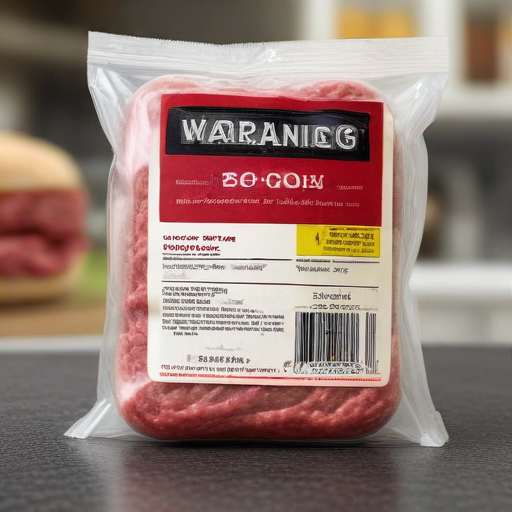A significant recall of ground beef products has been announced, affecting more than 167,000 pounds due to the potential risk of E. coli contamination. The U.S. Department of Agriculture’s Food Safety and Inspection Service (FSIS) reported that Wolverine Packing Co., based in Detroit, initiated this recall after being informed by the Minnesota Department of Agriculture about a cluster of illnesses. The illnesses were linked to ground beef consumed before the individuals fell ill.
The recalled products include both fresh and frozen ground beef, all marked with a use-by date of November 14, 2024, and a production date of October 22, 2024. The affected items carry the establishment number “EST. 2574B” within the USDA inspection mark and were distributed to restaurant locations across the U.S.
On November 13, the FSIS learned about several illness cases, and further investigation confirmed a connection to the ground beef from Wolverine Packing Co. A sample collected during the outbreak investigation tested positive for E. coli O157, which can lead to severe gastrointestinal issues. The FSIS indicated that 15 individuals had been identified with illnesses linked to the outbreak.
Authorities are actively investigating the situation alongside state health departments and have cautioned restaurants to refrain from serving the potentially contaminated products, advising that they should be discarded or returned to the point of purchase. Individuals experiencing symptoms related to E. coli are urged to seek medical advice.
E. coli O157 is a particularly dangerous strain of bacteria that can cause severe illness, including bloody diarrhea and abdominal cramps, typically surfacing two to five days after exposure. While most people recover without additional medical treatment, some may experience serious complications, necessitating hospitalization.
This recall highlights the importance of food safety and vigilance in preventing foodborne illnesses. Consumers and restaurant operators are reminded of the critical need to handle food safely and maintain proper hygiene practices. The situation also serves as a proactive reminder to take any food safety notifications seriously and act swiftly to protect health.
In light of this incident, it is hopeful that increased awareness and ongoing investigations will lead to improved food safety protocols, minimizing the risk of such contamination in the future.
